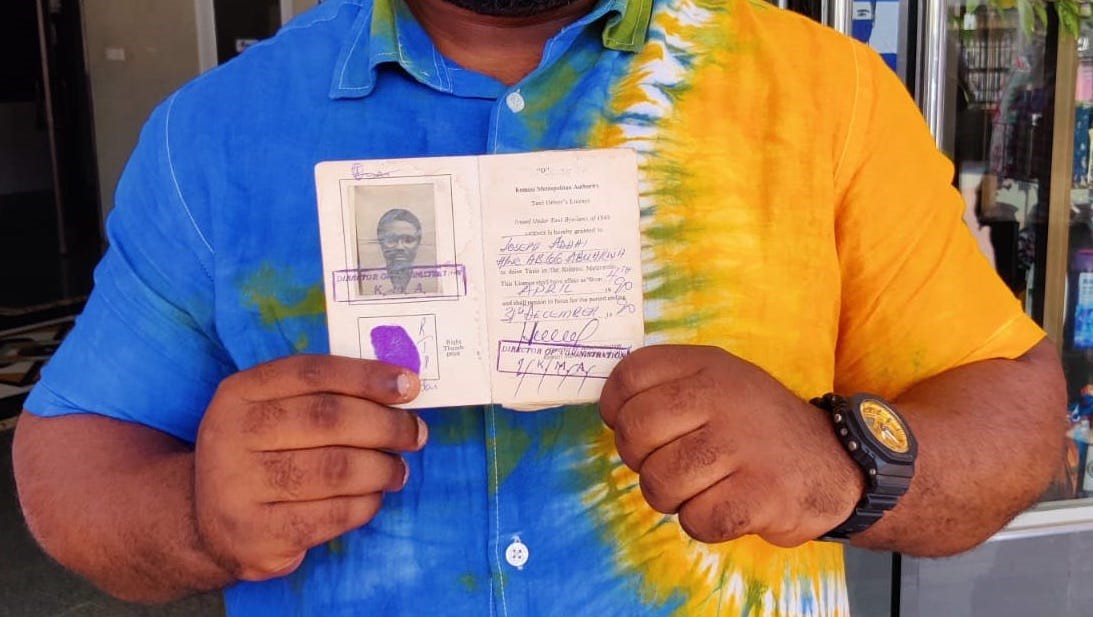AFRICA SEMINAR: ‘Certifications of Citizenship in Africa (CERTIZENS): Ghana and Uganda in focus'
 From passports to voter registration, accessing healthcare or getting a SIM card, ID documents are indispensable to everyday life. On the African continent, the number of people living without legal ID documents make up 50% of the estimated one billion people living worldwide without formal proof of identity. This is garnering increased attention both globally and nationally, not least through the Sustainable Development Goal 16.9, ‘legal identity for all’ by 2030, through a range of national registration reforms, and through the intensified promotion of digital ID ‘solutions’. Yet there is far more at stake, and a more complex and uneven set of implications, resulting from these shifts in focus and practice across the continent. With in-depth studies in Ghana and Uganda by a combination of nine researchers, CERTIZENS critically addresses the multiple, inter-related dimensions and differentiated effects of past and present systems of citizen/ship classification, certification and identification. In this seminar, two of the senior researchers within the CERTIZENS Project present their current work.
From passports to voter registration, accessing healthcare or getting a SIM card, ID documents are indispensable to everyday life. On the African continent, the number of people living without legal ID documents make up 50% of the estimated one billion people living worldwide without formal proof of identity. This is garnering increased attention both globally and nationally, not least through the Sustainable Development Goal 16.9, ‘legal identity for all’ by 2030, through a range of national registration reforms, and through the intensified promotion of digital ID ‘solutions’. Yet there is far more at stake, and a more complex and uneven set of implications, resulting from these shifts in focus and practice across the continent. With in-depth studies in Ghana and Uganda by a combination of nine researchers, CERTIZENS critically addresses the multiple, inter-related dimensions and differentiated effects of past and present systems of citizen/ship classification, certification and identification. In this seminar, two of the senior researchers within the CERTIZENS Project present their current work.
KOJO OPOKU AIDOO
University of Ghana Legon, Accra
One State, Many Citizens Identification Systems: Ghana Civic and Ethnic Citizenship Identifications
A striking feature of the current preoccupation with citizenship identification in Africa is its lopsidedness i.e., its overemphasis on civic citizenship to the almost total exclusion of ethnic citizenship, both of which are decidedly real. As a contribution towards rectifying this skewedness, my presentation focuses on the complex, equally baffling, yet often misunderstood question of citizenship recognition and identification among the Denkyira and Asante ethnic kingdoms of southern Ghana. Based on archival research and ethnographic fieldwork conducted in several towns and villages between mid-2021 and early 2022, I demarcate and analyse citizenship identification in these ethnic kingdoms – both historically and in present times – which is both “physical and transcendental” (Dukor, (2010: p. 157).
Kojo Opoku Aidoo is a Ghanaian Political Scientist and Senior Research Fellow at the Institute of African Studies, University of Ghana. His scholarship encompasses Political Economy of African Development, Political Theory, Social Movements in Africa, Globalization and Democracy in Africa, and State and Politics in Africa. He has been researching, publishing, and supervising graduate theses on these areas for a long time. Dr Aidoo is currently the Ghana Project Coordinator of the CERTIZENS Project.
GODFREY ASIIMWE
Makerere University, Kampala
Post-Independence Citizen Certification Regimes and their Impact on Banyarwanda in Uganda
In Uganda, governments over time have applied different logics of citizen classification and certification, with varying consequences for the identity and citizenship of different categories of Ugandans. One such affected group are the Banyarwanda. This presentation addresses the political economy of the different certification regimes in post-independence Uganda, and analyses their impact on Banyarwanda immigrants and former refugees. We argue that the post-independence certification processes created hierarchies in which the Banyarwanda were relegated to less valued and more vulnerable forms of citizenship. Among other things, this created challenges in navigating through citizen identification processes, sometimes entailing denial of their identity and being compelled to assimilate, which significantly impacted their lives, rights and livelihoods.
Godfrey Berinde Asiimwe is an Associate Professor of Development Studies at Makerere University, Kampala. He holds a PhD in Development Studies from the International Institute of Social Studies (ISS) of Erasmus University, Netherlands. His fields of interest include Governance and Democracy, Political Accountability and Corruption, Citizenship and Gender Relations among others. Dr Asiimwe is the Uganda Co-ordinator of the CERTIZENS Project.
The seminar will be hosted by Amanda Hammar, Professor of African Studies at the Centre of Africa Studies, and Principal Investigator of the CERTIZENS Project
